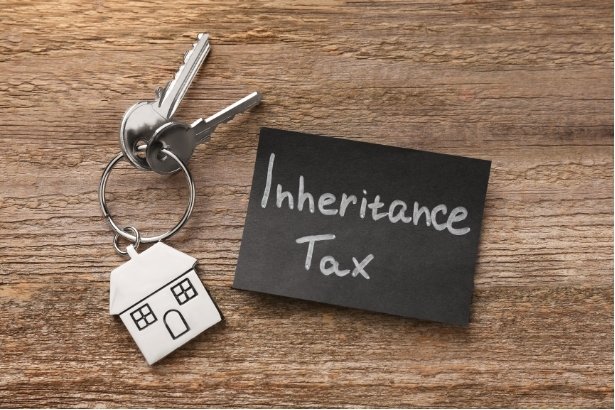Inheritance tax (IHT) is becoming an increasingly important issue for UK property owners, especially as frozen tax thresholds and rising property values are pulling more and more landlords and families into the IHT net. As the government makes changes to the UK inheritance tax laws, it’s essential for property owners to understand what is inheritance tax, how to avoid inheritance tax, and what the inheritance tax proposals for 2025 could mean for their estates.
In this post, we’ll break down the key inheritance tax changes for 2025, the implications of the Labour inheritance tax proposals, and practical advice on how to navigate these changes to protect your property investments.

What is Inheritance Tax?
Inheritance tax is a tax applied to the portion of an estate that exceeds a certain threshold. In the UK, the current inheritance tax rate is 40% on anything above £325,000 (gov.uk). However, if the estate includes a family home, there is an additional allowance of £175,000 when passed to children. Together, a couple can pass on up to £650,000 without incurring inheritance tax.
Inheritance tax can be especially significant for landlords, particularly those with multiple properties. The rising value of property in the UK, combined with frozen tax thresholds, has resulted in more and more estates being pushed into the IHT net.
The Inheritance Tax UK Landscape and Its Impact
Currently, over 600,000 landlords in the UK are facing potential inheritance tax bills, which accounts for more than 20% of all UK landlords. That’s approximately 63,000 out of 2.81 million landlords. This issue stems from both the frozen allowances (since 2009) and increasing property prices.
The accounting firm RSM estimates that 50,000 additional landlords will fall into the inheritance tax trap each year moving forward. With house prices continuing to rise, many property owners are finding themselves unintentionally liable for inheritance tax.

Labour Inheritance Tax Proposals and What They Mean for You
The Labour Party has proposed changes to UK inheritance tax in the upcoming budget. The inheritance tax proposals from Labour are designed to increase the tax burden on wealthier estates while simplifying the process for others. These changes could have a significant impact on landlords, especially those with high-value properties.
The Labour inheritance tax proposals for 2025 may include tightening of the rules surrounding trusts, limiting certain exemptions, and increasing rates for higher-value estates. If these proposals are implemented, it will become even more vital for property owners to take steps now to protect their assets.
Inheritance Tax Changes for 2025: What to Expect
The inheritance tax changes expected in 2025 will likely include the continuation of frozen tax thresholds, as well as potential increases in inheritance tax rates. This is particularly relevant for landlords who own multiple properties. As property prices continue to rise, the number of estates subject to inheritance tax will also increase.
The inheritance tax budget for 2025 will provide more clarity on whether further reforms will be implemented. However, it’s important for property owners to be proactive and plan ahead, as these changes could impact how property investments are passed down to heirs.
How to Avoid Inheritance Tax: Practical Strategies
There are several strategies you can employ to reduce or even avoid inheritance tax. By planning ahead, you can minimise the impact of inheritance tax on your estate. Some key strategies include:
1. Gifting Property: You can gift property to your heirs to reduce the value of your estate. However, be mindful of the potential capital gains tax (CGT) implications and the seven-year rule for inheritance tax. If you give away a property and live for at least seven years afterward, it can be exempt from inheritance tax.
2. Using Family Trusts: Setting up a family trust can help protect your property from inheritance tax. By placing assets in a trust, you can pass them on to your beneficiaries without incurring inheritance tax, as long as certain conditions are met.
3. Life Insurance: Taking out a life insurance policy in trust can provide funds to cover the inheritance tax liability on your estate. This is a cost-effective way to ensure your loved ones won’t be burdened by the tax bill.
4. Potentially Exempt Transfers (PETs): If you make gifts above the £3,000 annual exemption limit, these gifts will fall under the potentially exempt transfer rules. This means that if you live for seven years after gifting, the gift is exempt from inheritance tax.
5. Paying Inheritance Tax Over Time: If you’re facing a large inheritance tax bill, you can choose to pay it over a 10-year period. This option allows you to manage the financial impact gradually, rather than facing a lump sum payment.

What Will the Inheritance Tax Be in 2025?
The exact inheritance tax rates in 2025 will depend on the government’s decisions regarding the inheritance tax budget for that year. However, property owners should prepare for potential increases in tax rates and further tightening of exemptions, especially for larger estates.
If you’re concerned about the inheritance tax changes for 2025, it’s important to start planning now. Speak with a financial advisor or tax specialist to understand how these changes could affect your estate and what actions you can take to minimise the impact.
The Importance of Planning Ahead for Inheritance Tax
Proper planning can significantly reduce the impact of inheritance tax on your estate. With the inheritance tax changes set to take effect in 2025, it’s important to act sooner rather than later. By understanding the inheritance tax rules and using strategies such as gifting, trusts, and life insurance, you can ensure your assets are passed on to your heirs with minimal tax liability.
The inheritance tax trap is becoming more prevalent as property values rise and tax thresholds remain frozen. The upcoming inheritance tax budget for 2025 will provide further clarity on the government’s plans, but property owners must take proactive steps now to protect their estates.
In conclusion, the inheritance tax UK landscape is changing, and with Labour inheritance tax proposals and the inheritance tax budget 2025 on the horizon, it’s more important than ever to understand how to avoid inheritance tax and make informed decisions about your property. With careful planning, you can ensure that your wealth is preserved for future generations.
If you’re living abroad and need a UK mortgage, we can help. Read our blog post or contact us for expert guidance and tailored solutions to secure the right mortgage for your property investment.

With 14 years in UK property, Callum Williamson specialises in value-add conversions and portfolio growth. Starting with city flats, he expanded into HMOs and international assets. A passionate investor and co-author of The Expat Property Playbook, Callum helps expatriates build long-term wealth through smart, sustainable property strategies.